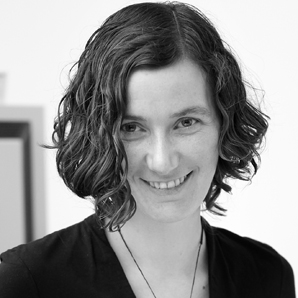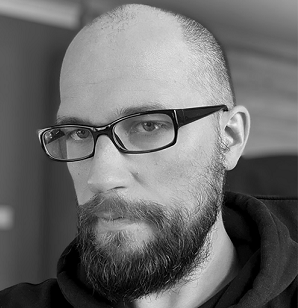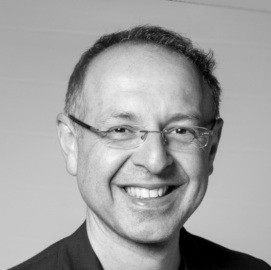While traditional interfaces in human-computer interaction mainly rely on vision and audio, haptics becomes more and more important. Haptics can not only increase the user experience and make technology more immersive, but it can also transmit information that is hard to interpret only through vision and audio, such as the softness of a surface or other material properties. In this workshop, we aim at discussing how we could interact with technology if haptics is strongly supported and which novel research areas could emerge. This workshop on visuo-haptic interaction will take place at the international conference on Advanced Visual Interfaces (AVI 2022).
Agenda
The workshop will be held as a one-day event (9:00 to 17:00) on Tuesday, June 7, 2022. The following schedule is planned:
- 9:30 Welcoming and inspirational keynote
- 10:30 Coffee break
- 11:00 Demo session
- 12:00 Lunch break
- 13:30 Ideation session as group work
- 15:00 Coffee break
- 15:30 Poster presentation and final discussion
- 17:00 End
Call for Participation
If you are interested in participation, please submit a 2 – 4 pages position paper using the ACM Master Article Template. It would be appreciated if your position paper is linked to one of these suggested topics – (a) visuo-haptic interaction in AR, MR, VR, (b) novel haptic actuators augmenting visual displays, (c) haptic feedback induced through vision, such as pseudo-haptics, virtual hand illusions, surface illusions, and body pose retargeting (Control/Display ratio) induced through visual discrepancies – or should present another area you believe fitting to this workshop. The position papers and demos will form the basis of the discussion and ideation session. Ideally, these discussions will lead to inspirations for future research in HCI. At least one participant from a group that submitted an abstract must attend the workshop.
The submissions do NOT have to be anonymous.
Important Dates
Workshop paper submission deadline: Sunday, April 10, 2022
Workshop paper acceptance notice: Wednesday, April 27, 2022
Workshop paper camera-ready: Sunday, May 8, 2022
Contributions
The contributions to our workshop can be found here.
Organizers

Katrin Wolf
Katrin Wolf is a professor for Human-Computer Interaction at the Berlin University of Applied Sciences for Technology. Her research interests lie at the intersection of human-computer interaction and interaction design, focusing on how to make novel technologies more usable and useful. To date, Katrin’s research has focused on technologies and domains including mobile and wearable systems; virtual, augmented, and mixed reality, as well as interactive exhibitions. Katrin is actively involved in the research community. Most notably, she was General Chair of the German conference on Mensch & Computer (MuC) 2019, Program Chair at TEI 2021, AHs 2019, and MUM 2018 as well as Late-Breaking Work Chair at CHI 2021 and Student Research Competition Chair of CHI 2019 and CHI 2020.
Marco Kurzweg is a Ph.D. student at the Berlin University of Applied Sciences and Technology. Currently, he is working on the interdisciplinary “Illusionary Surface Interfaces” research project, in which he is exploring possibilities to induce illusional haptic feedback. He received a bachelor’s degree in Media Systems and a master’s degree in Digital Reality at the Hamburg University of Applied Sciences. His research interests are the creation and understanding of haptic feedback and technologies to augment humans and their environment, like virtual and augmented reality.

Marco Kurzweg

Yannick Weiss
Yannick Weiss is a Ph.D. student at the Ludwig-Maximilians-Universität (LMU) in Munich. His research interests surround haptics in and for mixed reality, from understanding haptic perception to creating and adapting haptic experiences for virtual and augmented reality interfaces. He received a master’s degree in Human-Computer Interaction from LMU Munich in 2021 and is currently working on the research project „Illusionary Surface Interfaces“, where he is investigating the possibilities of sensory illusions to enrich haptic experiences.
Stephen Brewster is a Professor of Human-Computer Interaction in the School of Computing Science at the University of Glasgow. There, he leads the Multimodal Interaction Group, which is very active and has a strong international reputation in HCI (http://mig.dcs.gla.ac.uk). His research focuses on multimodal HCI, or using multiple sensory modalities and control mechanisms (particularly audio, haptics, and gesture) to create a rich, natural interaction between human and computer. His work has a strong experimental focus, applying perceptual research to practical situations. A long-term focus has been on mobile interaction and how we can design better user interfaces for users who are on the move. Other areas of interest include VR/AR, wearable devices, and in-car interaction. He pioneered the study of non-speech audio and haptic interaction for mobile devices, with work starting in the 1990s. He was a General Chair of CHI 2019 in Glasgow, CHI papers chair in 2013 and 2014, and has previously chaired MobileHCI, EuroHaptics, and TEI. He is a member of the ACM SIGCHI Academy, an ACM Distinguished Speaker, and a Fellow of the Royal Society of Edinburgh.

Stephen Brewster

Albrecht Schmidt
Albrecht Schmidt is a professor of computer science at Ludwig-Maximilians-Universität (LMU) in Munich, where he holds a chair for Human-Centered Ubiquitous Media. His teaching and research interests are in human-centered artificial intelligence, intelligent interactive systems, ubiquitous computing, multimodal user interfaces, and digital media technologies. He studied computer science at the University of Ulm (Germany) and at the Manchester Metropolitan University, where he wrote 1996 his M.Sc. thesis with the title „A modular neural network architecture with additional generalization abilities for high dimensional input vectors“. In 2003, he completed his Ph.D. at Lancaster University. Albrecht chaired the technical program of ACM SIGCHI 2014, he is on the editorial board of the ACM TOCHI journal, and he is the co-founder of the ACM conference TEI and Automotive User interfaces. In 2018, he was inducted into the ACM SIGCHI Academy and in 2020 he was elected into Leopoldina, the Germany academy of science.